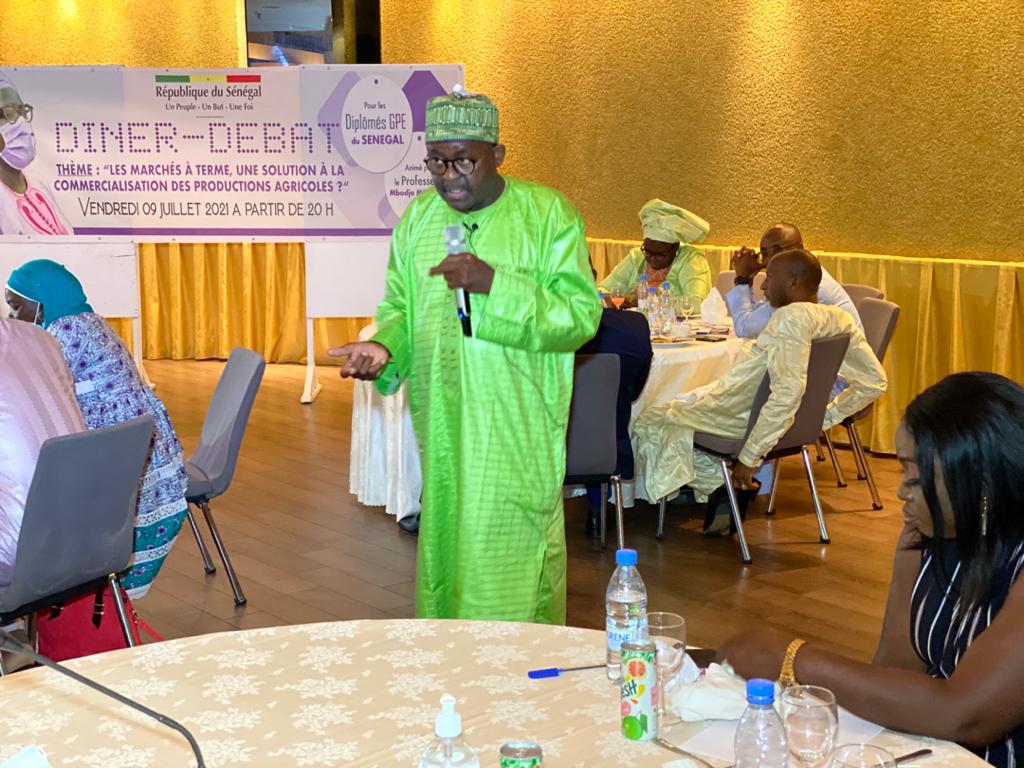Helping smooth volatile food prices in Senegal is focus of second Fulbright for finance Professor Mbodja Mougoué

Mbodja Mougoue
The Fulbright U.S. Scholar award is a tremendous opportunity for any scholar to apply their research and learning in practical real-world scenarios all across the world. A highly selective process, most applicants are fortunate if they are selected at all. Even rarer still, is to be selected a second time.
One of those rare few is finance Professor Mbodja Mougoué of the Mike Ilitch School of Business. Mougoué received the Fulbright U.S. Scholar award to live and work in Senegal beginning in October, bringing his knowledge to a country and economy that needs it, he says.
“This is my second time,” says Mougoué. “My first award was in 2000. Since then, I’ve applied a few more times but hadn’t received it again until now. It took over 20 years, but I was overjoyed. Very few people win more than once, if at all.
“My first Fulbright, I went to a country that was going to a lot of political turmoil - the Ivory Coast or Côte d'Ivoire. So, I don’t know if I can say I was able to take full advantage of my Fulbright. There was a lot of chaos and insecurity; I don’t feel like I got the most out of it.”
Mougoué, originally from Cameroon, came to the U.S. to study for his Ph.D. in the early ’80s. ‘’The plan was originally for me to go back home, but I decided to stay and work in the U.S.,’’ says Mougoué, who arrived at WSU as an assistant professor in the fall of 1992. He has stayed 30 years and is now a tenured professor.
“There are so many opportunities in America I didn’t have growing up, things I never could have dreamed of,” he says. “They are there for you if you want to grab them. It’s so different from where I came from. There weren’t that many educational or economic opportunities. It is still that case today.”
Mougoué will use his expertise in investment and financial markets to help the Senegalese government establish a commodities derivatives market to smooth the volatility of prices that often lead to civil unrest.
“Senegal, like many African countries, suffers from food insecurity due to extreme volatility of food prices,” he says. “The goal here is to see how I can implement a market that would help stabilize food prices.
“Last year I was in Senegal on the invitation of the Senegalese government to work on the same topic. The current of minister of commerce is my former student. She’s the one who encouraged the Senegalese government to invite me.”
Mougoué says it is hard to put into words just how much it means to be able to help out in his home continent of Africa.
“I am originally from Cameroon,” he says. “In a way this is my own attempt to give back what I have learned.
“It is so exhilarating to be able to make a real difference in a human’s life. We are in the classroom all day teaching these theories and asking how they can translate into something practical. To be able to get out there and do something concrete and give something tangible to society is just so fulfilling and gratifying.”
Fulbright awards range in length from two weeks to a full year. Faculty, academic staff and administrators who want to apply for the Fulbright Scholar Program can learn more online or contact the Office of International Programs at oip@wayne.edu for assistance.
The Office of International Programs leads Wayne State’s global engagement by creating opportunities that foster international education and research, facilitate the exchange of individuals and ideas that promote global competencies and citizenship, and provide resources that support the expansion of the university’s global agenda. Follow us @WayneOIP.